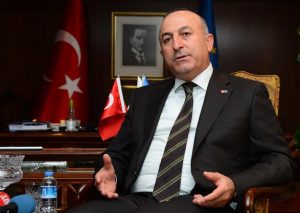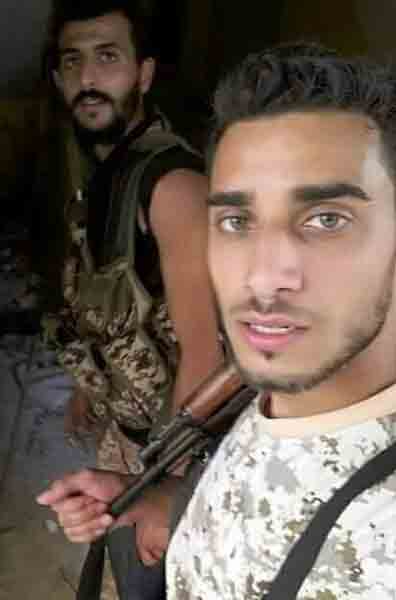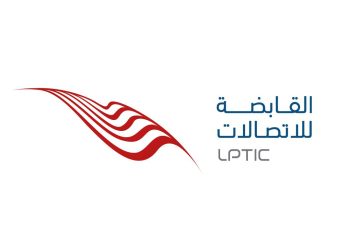
Mevlüt Çavuşoğlu (Photo: Hurriyet Daily News)
Istanbul 29 June 2017:
The mantra common to all the diplomats and governments concerned in Libya’s crisis is that peace will not come out of the barrel of a gun but can only be achieved by constructive negotiation involving all parties. The Libyan Political Agreement took this process to the edge of a settlement but has thus far failed to garner support across the board, not least from the House of Representatives (HoR) in Tobruk.
Tomorrow Turkey hosts a conference that it is hoped will define more closely how diplomats, acting under UN auspices, can work proactively to bring about mediation and find an end to conflict. Libya is one of the countries most needful of this initiative. Turkey’s foreign minister, Mevlüt Çavuşoğlu has set out the ambitions for conference which we publish unedited below.
Surge in Diplomacy, Action in Mediation
The fourth edition of the Istanbul Conference on Mediation will take place on 30 June 2017 with the theme of “Surge in Diplomacy, Action in Mediation.” Experts, diplomats, practitioners and scholars from around the world will explore ways and means to promote mediation as a prominent conflict prevention and resolution method.
The profile of mediation has been rising globally since Turkey and Finland led the way at the United Nations through the “Mediation for Peace” initiative. The initiative culminated in the establishment of the Group of Friends of Mediation. The Group now has 53 members, including 48 states and 5 international organisations. There has also been substantial improvement in international capacity for preventive diplomacy and mediation within the UN, regional and sub-regional organisations and civil society. The Group has become the leading platform at the UN to promote mediation. It has initiated the adoption of four UN General Assembly Resolutions, which lay the ground for the development of the normative and conceptual framework of mediation. The Group has also contributed to the 2012 “United Nations Guidance for Effective Mediation”, a fundamental document for those who practice and study mediation worldwide.
UN Secretary General Antonio Guterres has expressed his willingness to further develop UN’s mediation support capacity. His efforts are most commendable. We call on all UN member states to support UNSG Guterres’ broad vision and efforts to prevent and solve today’s conflicts. Turkey has been doing her part. Turkey is situated next to a vast region where acute active and frozen conflicts persist. Prevention and peaceful resolution of conflicts is a central feature of Turkey’s enterprising and humanitarian foreign policy. Turkey undertakes various efforts in a wide geography from Africa to the Middle East, the Balkans and the Caucasus. She sees peacemaking in a humanitarian-development nexus. This year, Turkey has again become the most generous nation in the world in terms of per capita humanitarian assistance.
Turkey has been hosting the Istanbul Conferences on Mediation since 2012. These landmark conferences are designed to bring together numerous practitioners and scholars in the field of conflict prevention and mediation activities. The aim of these conferences is to promote synergies between theory and practice and help increase scope, reach and effectiveness of the international community’s mediation efforts. I must pay tribute to the efforts of mediators engaging daily in conflicts worldwide.
This year the Conference will explore how mediation methodology and practice can take better account of the needs of the day. In this regard, two questions in particular would be scrutinised. One is the potential of mediation in all stages of a conflict continuum, namely from prevention to resolution and all the way to peace agreement implementation. The second key question would be the models for greater employment of mediation as a preventive tool in contexts where political, ethnic, religious biases create an environment of hostility.
The latter is especially pertinent since we have come to sadly witness extreme tendencies in various forms of political, social and religious animosities. The rise in attacks in Europe against Muslims and migrants is a case in point. Prevention is key. However, prevention would be possible only when societies recognise and learn to respect differences and engage in genuine dialogue and interaction. I believe that mediators who are well-equipped with the cultural codes of conduct in a given conflict situation can reach remarkable success. For that, we need to train more mediators including at youth while encouraging more women mediators and equip them with the right tools.
Our challenges to make peace the overwhelming reality on a global level are immense. However, we should be able to see the opportunities within those challenges. The readiness and willingness of the international community to build capacity in peaceful resolution of conflicts including mediation must be a priority. As we prepare to welcome participants of the Fourth Istanbul Mediation Conference, I call on the international community to take action in mediation.









